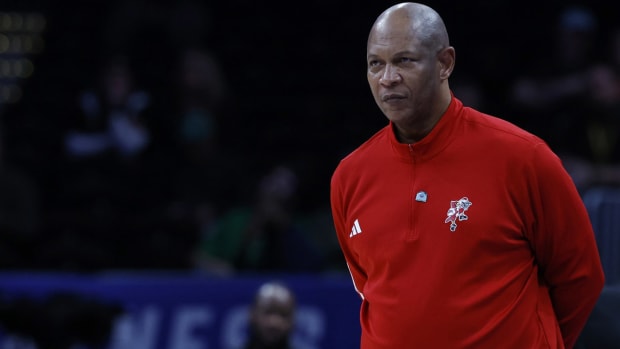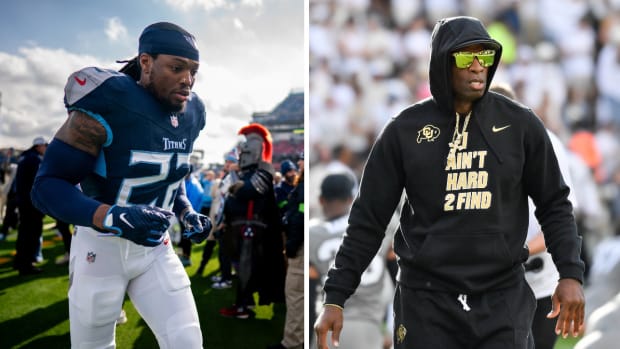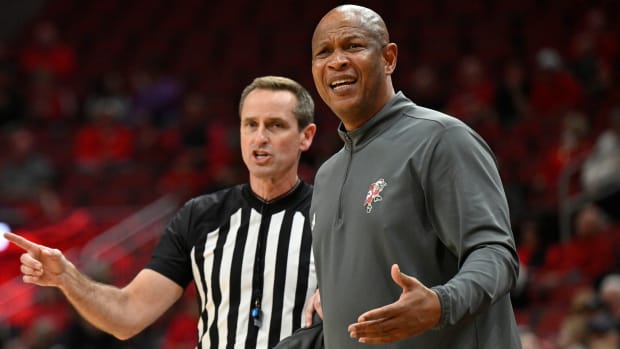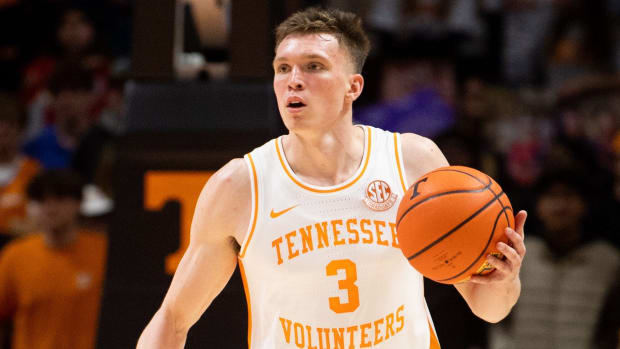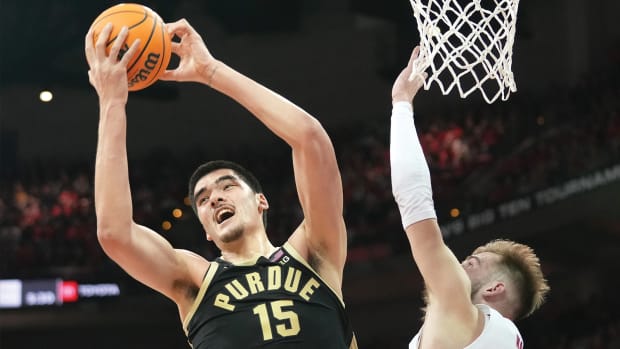
IRS Says Donations Made to Nonprofit NIL Collectives Are Not Tax Exempt
In news that could rock the world of name, image and likeness, the Internal Revenue Service suggests that nonprofit NIL collectives offering tax deductions could be breaking the law.
According to a memo released from the office of the IRS Chief Counsel, donations made to nonprofit NIL collectives “are not tax exempt” because the benefits they provide college athletes are “not incidental both qualitatively and quantitatively to any exempt purpose.”
The 12-page memo was posted publicly Friday on the IRS website. The memo, actually written May 23, is filtering through the college athletics world as well as those working in the collective space.
The full memo can be found here.
The news could have a resounding impact in the collective space, where booster-led groups are pooling donations to distribute to college athletes through NIL deals. More than 200 collectives exist among the 131 FBS schools, dozens of which have been granted 501(c)(3) status and are receiving millions in donations from boosters who are under the impression that their gifts fall under tax deduction.
Though the IRS has approved 501(c)(3) nonprofit status, many within the college industry have warned for more than a year now that the government entity would eventually investigate and likely put a stop to tax deductions for NIL-related donations. Jason Belzer, the co-founder of Student Athlete NIL who manages several for-profit collections, has been one of the loudest critics of nonprofit collectives.
“I think it’s a bad business model,” Belzer told Sports Illustrated recently. “I’ve been long on the record to say the majority of collectives are doing it as a way that is disingenuous. They are using it to get a tax writeoff to pay student athletes.
“The IRS may grant it and then come back a year later and say, ‘Wait, what the f--- is going on? The kid promoting the charity is driving around the Mercedes and tweeting about how great this charity is!?’”
In the latest evolution of NIL collectives, a school’s foundation arm—a nonprofit entity—is growing more involved in athlete compensation. Mostly within the SEC footprint, state legislatures are amending their laws to give their schools an advantage in allowing such a model, which Texas A&M announced earlier this spring. SI published a story last week diving into the issue.
Lynne A. Camillo, deputy associate chief counsel overseeing exempt organization and employment taxes, wrote the memo, the purpose of which was to “address whether developing paid name, image, and likeness (NIL) opportunities for collegiate student-athletes furthers an exempt purpose under section 501(c)(3),1 and to promote consistent treatment of similarly situated taxpayers and sound tax administration.”
The memo warns that it is not to be “used or cited as precedent.”
The memo ends with a ruling, per se.
“Consequently, it is the view of this Office that many organizations that develop paid NIL opportunities for student-athletes are not tax exempt and described in section 501(c)(3) because the private benefits they provide to student-athletes are not incidental both qualitatively and quantitatively to any exempt purpose furthered by that activity,” Camillo writes.
It’s unclear what happens now.
Nonprofit collectives are likely to stop offering tax-deductible donations, but one college athletic director believes the IRS could do more. It could conceivably tax the previous donations made and potentially even charge the donors and the collective with penalties.
“I’m glad we didn’t go with the 501c3 model,” says one school associate athletic director. “What I tell my donors is. ... What charity are you donating to? You’re not. You’re lining kids’ pockets to keep them at your school. That’s not a charity. That’s a way to get around tax laws which leads to tax evasion and opens a whole different can of worms for donors.
“I’m damn sure glad we didn’t do it.”
Dozens of school booster groups did, however.
Offering tax deductions is a way to encourage more giving from boosters, who for years have donated their money to nonprofit foundations affiliated with their athletic department. Foundation donations are traditionally tax deductible.
The reaction around the college sports world is a mixed bag. Some nonprofit collective executives are waiting for more information or an assessment from attorneys. Those with for-profit collectives eventually expected such a ruling from the IRS.
“I am not surprised at all by this news,” says Corey Staniscia, CEO of the Fowler Ave Collective promoting USF. “These are not charitable organizations. These are service contracts and rights of publicity commercial organizations. It’s one thing to partner with a 501(c)(3), it’s another to claim to actually be a 501(c)(3). I have been asked more times than I can count why Fowler Ave Collective is not a nonprofit. It was always too risky.”
